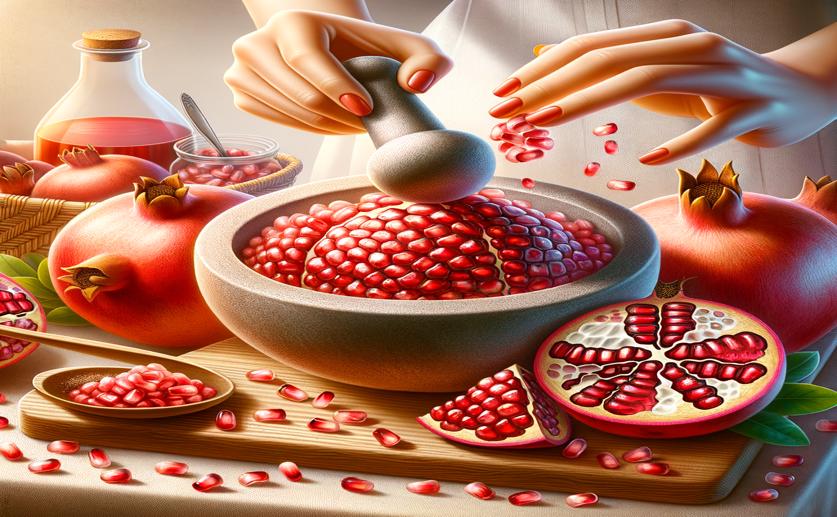
Pomegranate Peel Extract Reduces Inflammation in Women With Knee Osteoarthritis
Jenn Hoskins
3rd June, 2024

Image Source: Natural Science News, 2024
Key Findings
- The study by Tabriz University of Medical Sciences focused on obese women with knee osteoarthritis (OA)
- Pomegranate peel extract (PPE) significantly reduced inflammatory markers like hs-CRP, NF-ĸB, MMP1, and MCP-1 in the intervention group
- PPE supplementation may help manage inflammation in knee OA, potentially alleviating symptoms and slowing disease progression
References
Main Study
1) Effects of Pomegranate (Punica granatum L.) Peel Extract Supplementation on Markers of Inflammation and Serum Matrix Metalloproteinase 1 in Women With Knee Osteoarthritis: A Randomized Double-Blind Placebo-Controlled Study.
Published 3rd June, 2024
https://doi.org/10.1177/11786388241243266
Related Studies
2) Osteoarthritis.
3) Osteoarthritis.
4) Etiopathogenesis of osteoarthritis.



 16th April, 2024 | Jim Crocker
16th April, 2024 | Jim Crocker